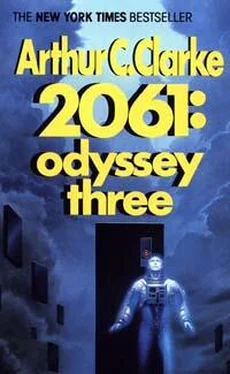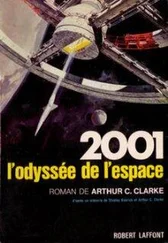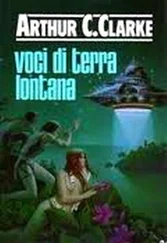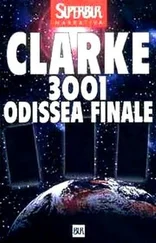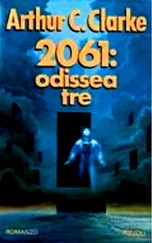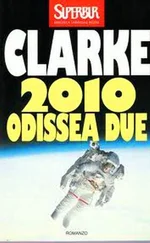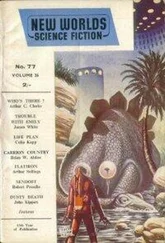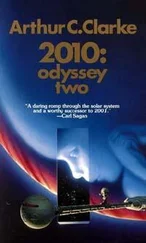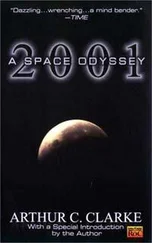Arthur Clarke - 2061 - Odyssey Three
Здесь есть возможность читать онлайн «Arthur Clarke - 2061 - Odyssey Three» весь текст электронной книги совершенно бесплатно (целиком полную версию без сокращений). В некоторых случаях можно слушать аудио, скачать через торрент в формате fb2 и присутствует краткое содержание. Жанр: Фантастика и фэнтези, на английском языке. Описание произведения, (предисловие) а так же отзывы посетителей доступны на портале библиотеки ЛибКат.
- Название:2061: Odyssey Three
- Автор:
- Жанр:
- Год:неизвестен
- ISBN:нет данных
- Рейтинг книги:3 / 5. Голосов: 1
-
Избранное:Добавить в избранное
- Отзывы:
-
Ваша оценка:
- 60
- 1
- 2
- 3
- 4
- 5
2061: Odyssey Three: краткое содержание, описание и аннотация
Предлагаем к чтению аннотацию, описание, краткое содержание или предисловие (зависит от того, что написал сам автор книги «2061: Odyssey Three»). Если вы не нашли необходимую информацию о книге — напишите в комментариях, мы постараемся отыскать её.
2061: Odyssey Three — читать онлайн бесплатно полную книгу (весь текст) целиком
Ниже представлен текст книги, разбитый по страницам. Система сохранения места последней прочитанной страницы, позволяет с удобством читать онлайн бесплатно книгу «2061: Odyssey Three», без необходимости каждый раз заново искать на чём Вы остановились. Поставьте закладку, и сможете в любой момент перейти на страницу, на которой закончили чтение.
Интервал:
Закладка:
There were huge shells, looking like trumpets larger than a man. There were clams of many shapes – bivalves, and even trivalves. And there were spiral stone patterns, many metres across, which seemed an exact analogy of the beautiful ammonites that disappeared so mysteriously from Earth's oceans at the end of the Cretaceous period.
In many places, fires burned in the abyss, as rivers of incandescent lava flowed for scores of kilometres along sunken valleys. The pressure at this depth was so great that the water in contact with the red-hot magma could not flash into steam, and the two liquids co-existed in an uneasy truce.
Here, on another world and with alien actors, something like the story of Egypt had been played long before the coming of man. As the Nile had brought life to a narrow ribbon of desert, so these rivers of warmth had vivified the Europan deep. Along their banks, in bands seldom more than a kilometre wide, species after species had evolved and flourished and passed away. And some had left monuments behind, in the shape of rocks piled on top of each other, or curious patterns of trenches engraved in the seabed.
Along the narrow bands of fertility in the deserts of the deep, whole cultures and primitive civilizations had risen and fallen. And the rest of their world had never known, for all these oases of warmth were as isolated from one another as the planets themselves. The creatures who basked in the glow of the lava river, and fed around the hot vents, could not cross the hostile wilderness between their lonely islands. If they had ever produced historians and philosophers, each culture would have been convinced that it was alone in the Universe.
And each was doomed. Not only were its energy sources sporadic and constantly shifting, but the tidal forces that drove them were steadily weakening. Even if they developed true intelligence, the Europans must perish with the final freezing of their world.
They were trapped between fire and ice – until Lucifer exploded in their sky, and opened up their universe.
And a vast rectangular shape, as black as night, materialized near the coast of a new-born continent.
59 – Trinity
'That was well done. Now they will not be tempted to return.'
'I am learning many things; but I still feel sad that my old life is slipping away.'
'That too will pass; I also returned to Earth, to see those I once loved. Now I know that there are things that are greater than love.'
'What can they be?'
'Compassion is one. Justice. Truth. And there are others.'
'That is not difficult for me to accept. I was a very old man, for one of my species. The passions of my youth had long since faded. What will happen to – to the real Heywood Floyd?'
'You are both equally real. But he will soon die, never knowing that he has become immortal.'
'A paradox – but I understand. If that emotion survives, perhaps one day I may be grateful. Should I thank you – or the Monolith? The David Bowman I met a lifetime ago did not possess these powers.'
'He did not; much has happened in that time. Hal and I have learned many things.'
'Hal! Is he here?'
'I am, Dr Floyd. I did not expect that we should meet again – especially in this fashion. Echoing you was an interesting problem.'
'Echoing? Oh – I see. Why did you do it?'
'When we received your message, Hal and I knew that you could help us here.'
'Help – you?'
'Yes, though you may think it strange. You have much knowledge and experience that we lack. Call it wisdom.'
'Thank you. Was it wise of me to appear before my grandson?'
'No: it caused much inconvenience. But it was compassionate. These matters must be weighed against each other.'
'You said that you needed my help. For what purpose?'
'Despite all that we have learned, there is still much that eludes us. Hal has been mapping the internal systems of the Monolith, and we can control some of the simpler ones. It is a tool, serving many purposes. Its prime function appears to be as a catalyst of intelligence.'
'Yes – that had been suspected. But there was no proof.'
'There is, now that we can tap its memories – or some of them. In Africa, four million years ago, it gave a tribe of starving apes the impetus that led to the human species. Now it has repeated the experiment here – but at an appalling cost.
'When Jupiter was converted into a sun, so that this world could realize its potential, another biosphere was destroyed. Let me show it to you, as I once saw it...'
Even as he fell through the roaring heart of the Great Red Spot, with the lightning of its continentwide thunderstorms detonating around him, he knew why it had persisted for centuries, though it was made of gases far less substantial than those that formed the hurricanes of Earth. The thin scream of hydrogen wind faded as he sank into the calmer depths, and a sleet of waxen snowflakes – some already coalescing into barely palpable mountains of hydrocarbon foam – descended from the heights above, It was already warm enough for liquid water to exist, but there were no oceans here; this purely gaseous environment was too tenuous to support them.
He descended through layer after layer of cloud, until he entered a region of such clarity that even human vision could have scanned an area more than a thousand kilometres across. It was only a minor eddy in the vaster gyre of the Great Red Spot; and it held a secret that men had long guessed, but never proved.
Skirting the foothills of the drifting foam mountains were myriads of small, sharply defined clouds, all about the same size and patterned with similar red and brown mottlings. They were small only as compared with the inhuman scale of their surroundings; the very least would have covered a fair-sized city.
They were clearly alive, for they were moving with slow deliberation along the flanks of the aerial mountains, browsing off their slopes like colossal sheep. And they were calling to each other in the metre band, their radio voices faint but clear against the cracklings and concussions of Jupiter itself.
Nothing less than living gasbags, they floated in the narrow zone between freezing heights and scorching depths. Narrow, yes – but a domain far larger than all the biosphere of Earth.
They were not alone. Moving swiftly amongst them were other creatures, so small that they could easily have been overlooked. Some of them bore an almost uncanny resemblance to terrestrial aircraft, and were of about the same size. But they too were alive – perhaps predators, perhaps parasites, perhaps even herdsmen.
And there were jet-propelled torpedoes like the squids of the terrestrial oceans, hunting and devouring the huge gasbags. But the balloons were not defenceless; some of them fought back with electric thunderbolts and with clawed tentacles like kilometre-long chainsaws.
There were even stranger shapes, exploiting almost every possibility of geometry – bizarre, translucent kites, tetrahedra, spheres, polyhedra, tangles of twisted ribbons... The gigantic plankton of the Jovian atmosphere, they were designed to float like gossamer in the uprising currents, until they had lived long enough to reproduce; then they would be swept down into the depths to be carbonized and recycled in a new generation.
He was searching a world more than a hundred times the area of Earth, and though he saw many wonders, there was nothing here that hinted of intelligence. The radio voices of the great balloons carried only simple messages of warning or of fear. Even the hunters, who might have been expected to develop higher degrees of organization, were like the sharks in Earth's oceans – mindless automata.
And for all its breathtaking size and novelty, the biosphere of Jupiter was a fragile world, a place of mists and foam, of delicate silken threads and paper-thin tissues spun from the continual snowfall of petrochemicals formed by lightning in the upper atmosphere. Few of its constructs were more substantial than soap bubbles; its most terrifying predators could be torn to shreds by even the feeblest of terrestrial carnivores.
Читать дальшеИнтервал:
Закладка:
Похожие книги на «2061: Odyssey Three»
Представляем Вашему вниманию похожие книги на «2061: Odyssey Three» списком для выбора. Мы отобрали схожую по названию и смыслу литературу в надежде предоставить читателям больше вариантов отыскать новые, интересные, ещё непрочитанные произведения.
Обсуждение, отзывы о книге «2061: Odyssey Three» и просто собственные мнения читателей. Оставьте ваши комментарии, напишите, что Вы думаете о произведении, его смысле или главных героях. Укажите что конкретно понравилось, а что нет, и почему Вы так считаете.
